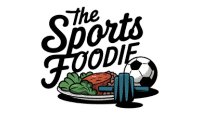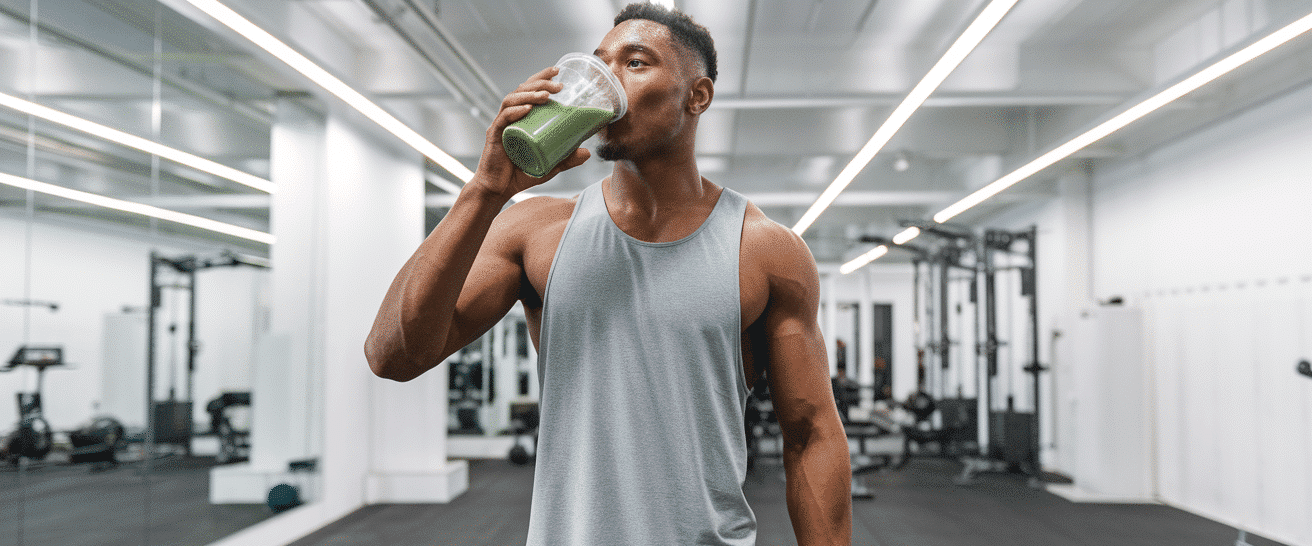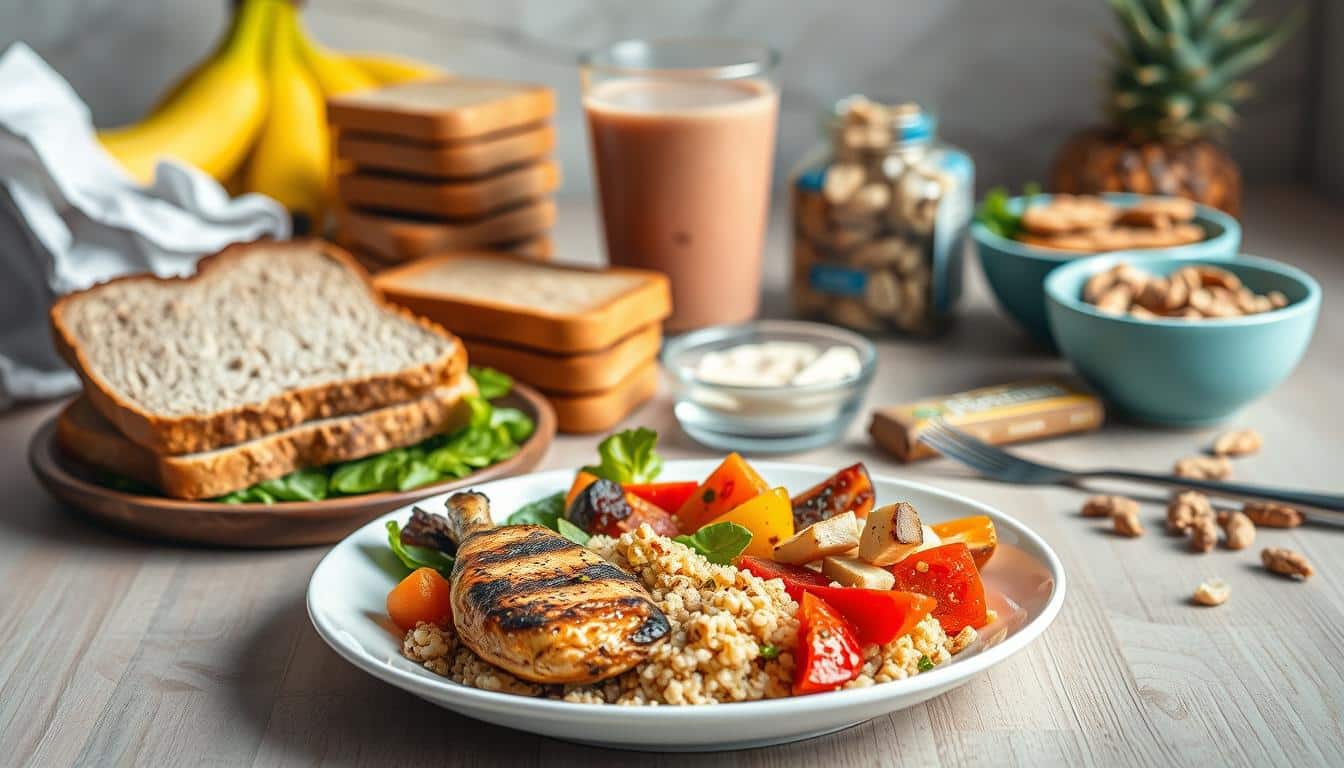What you eat before a game can make or break your performance on the field. Proper nutrition isn’t just about filling your stomach—it’s about fueling your body for energy and endurance. Whether you’re a seasoned athlete or just starting, the right choices can help you stay sharp and strong throughout the match.
Many players overlook the importance of pre-game eating, leading to sluggishness or burnout. By focusing on the right nutrients, you can optimize your performance and feel your best. Ready to learn how to fuel up like a pro? Let’s dive into the essentials every athlete needs before stepping onto the field.
Why Pre-Game Meals Matter for Soccer Players
Your game-day performance hinges on the fuel you choose before stepping onto the field. Nutrition plays a critical role in how you perform, from sprinting to making quick decisions. Without the right fuel, you risk fatigue, sluggishness, and even a drop in focus.
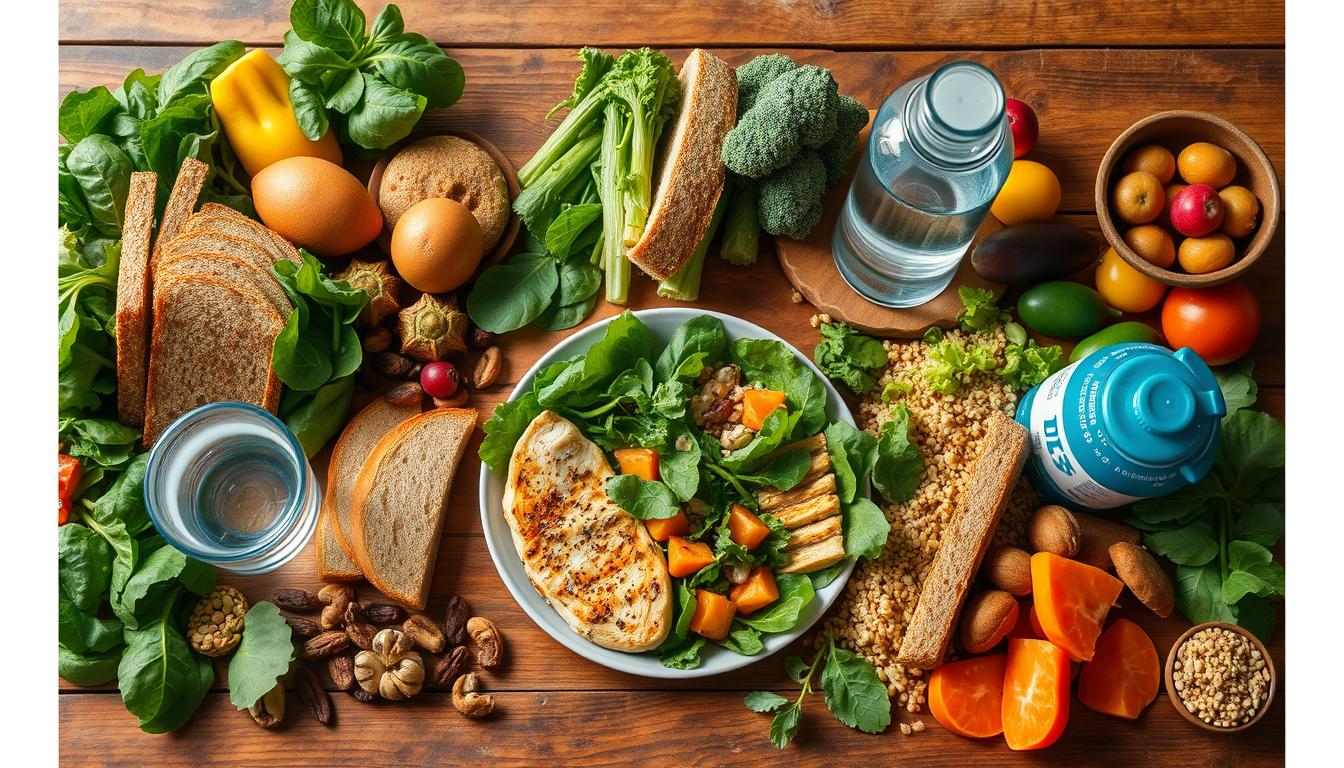
The Role of Nutrition in Performance
Carbohydrates are your body’s primary source of energy. They’re stored as glycogen in your muscles and liver, which fuels intense activity like sprinting or tackling. When glycogen levels drop, so does your performance. LA Galaxy athletes, for example, rely on carb-focused meals to maintain their glycogen stores.
Underfueling can lead to a 40% reduction in passing accuracy. Your brain also needs glucose to stay sharp during complex plays. Without it, decision-making suffers, and you might experience the dreaded “bonk” mid-game.
How Pre-Game Meals Impact Energy and Focus
Eating the right foods before a match ensures sustained energy and mental clarity. Dehydration, on the other hand, can reduce running speeds by 34% in the later stages of a game. Proper hydration and nutrition work hand in hand to keep you at your best.
Here’s a quick comparison of the effects of proper fueling vs. underfueling:
| Proper Fueling | Underfueling |
|---|---|
| Sustained energy throughout the game | Second-half fatigue |
| Sharp decision-making | Reduced passing accuracy |
| Optimal sprinting and tackling | Sluggish movements |
By focusing on the right nutrition, you can avoid these pitfalls and perform at your peak. It’s not just about eating—it’s about fueling your body for success.
Key Nutrients for Pre-Game Meals
The right nutrients can transform your game-day performance. To stay sharp and strong, focus on three main components: carbs, protein, and healthy fats. These work together to fuel your body, repair muscles, and keep your energy levels steady.
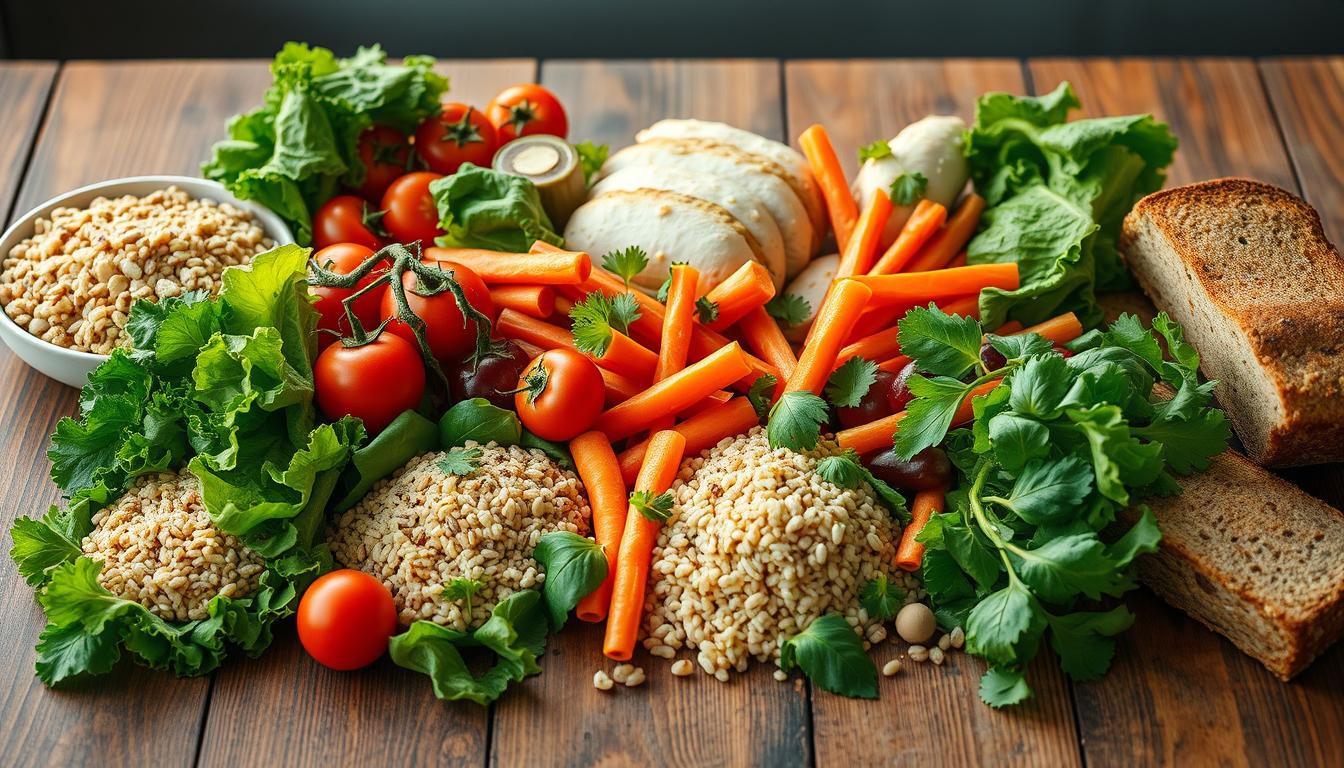
Carbohydrates: The Primary Energy Source
Carbs are your body’s go-to fuel for intense activity. They’re stored as glycogen in your muscles and liver, which powers everything from sprints to tackles. Aim for 8-10g of carbs per kilogram of body weight before a game.
Here are some examples of carb-rich foods:
- 1 cup of cooked rice = 45g of carbs
- 1 medium banana = 27g of carbs
- 1 slice of whole-grain bread = 15g of carbs
LA Galaxy athletes rely on a 50% carb ratio in their meals to maintain energystores.
Protein: Essential for Muscle Repair
Protein helps repair and build muscles, making it crucial for recovery. Grilled chicken is a great choice because it’s lean and easy to digest, unlike fried options that can feel heavy. A palm-sized portion (about 3-4 ounces) is ideal.
Other protein-rich foods include:
- Greek yogurt (17g of protein per 6 ounces)
- Eggs (6g of protein per egg)
- Tofu (10g of protein per ½ cup)
Healthy Fats: Supporting Sustained Energy
Healthy fats provide long-lasting energy and support overall health. Avocados are a top pick, but stick to ¼ of an avocado to avoid feeling too full. Olive oil is another great option—it digests faster than butter and adds flavor to meals.
Here’s how to incorporate healthy fats:
- Drizzle olive oil on salads or roasted veggies
- Add a tablespoon of nut butter to smoothies
- Snack on a handful of almonds or walnuts
Timing Your Pre-Game Meals
Timing your meals before a game is just as important as what you eat. Eating too early can leave you hungry, while eating too late can cause discomfort during activity. To avoid fatigue and stay sharp, plan your meals and snacks strategically.
When to Eat Your Main Pre-Game Meal
Your main meal should be eaten 3-4 hours before the game. This gives your body enough time to digest and convert food into energy. Here’s a sample 4-hour countdown schedule:
- 4 hours before: Grilled chicken with rice and steamed veggies.
- 3 hours before: Oatmeal with berries and a drizzle of honey.
- 2 hours before: A banana or a small handful of almonds.
- 1 hour before: A light snack like a granola bar or a piece of toast.
Oatmeal digests faster than steak, making it a better choice closer to game time. If you’re traveling, adjust your schedule to account for airport meals or delays.
Optimal Timing for Pre-Game Snacks
Snacks should be eaten about 1 hour before the game. Choose easy-to-digest options that provide quick energy. Avoid heavy or greasy foods that can slow you down.
Here are three liquid meal alternatives for nervous stomachs:
- Smoothie with banana, almond milk, and a scoop of protein powder.
- Greek yogurt with a drizzle of honey and a sprinkle of granola.
- Electrolyte drink with a small piece of fruit.
Remember to stay hydrated. The Australian Soccer Federation recommends 200-600ml of fluids before training or a match. Avoid caffeine 90 minutes before the game to prevent jitters.
Pre-Game Meal Ideas for Soccer Players
Fueling up with the right foods before a match can set the tone for your entire game. Whether it’s breakfast, lunch, or dinner, the key is to choose meals that provide sustained energy and are easy to digest. Let’s explore some quick and effective options for every time of day.
Breakfast Options for Morning Games
Starting your day with a balanced breakfast is crucial for morning games. A Greek yogurt parfait is a 15-minute recipe that combines protein and carbs. Layer Greek yogurt with granola and fresh fruit like berries or bananas. It’s light, quick, and packed with nutrients.
Another great option is a muesli bowl, inspired by LA Galaxy athletes. Mix oats, nuts, and dried fruit with almond milk. Add a drizzle of honey for extra energy. This meal is perfect for those who prefer a no-cook breakfast.
Lunch and Dinner Ideas for Afternoon or Evening Games
For afternoon or evening games, focus on meals that are hearty yet easy to digest. A chicken quinoa bowl takes just 30 minutes to prepare. Combine grilled chicken, quinoa, and steamed vegetables like broccoli or carrots. Drizzle with olive oil for a touch of healthy fat.
If you’re short on time, try a batch-cooked turkey meatball recipe. Make a large batch ahead of time and store them in the fridge or freezer. Pair with whole-grain pasta or a side of roasted vegetables for a complete meal.
Here’s a quick comparison of meal options:
| Meal | Preparation Time | Key Ingredients |
|---|---|---|
| Greek Yogurt Parfait | 15 minutes | Greek yogurt, granola, fruit |
| Chicken Quinoa Bowl | 30 minutes | Chicken, quinoa, vegetables |
| Turkey Meatballs | Batch-cooked | Turkey, whole-grain pasta, vegetables |
For travel-friendly meals, consider wraps or stir-fries. LA Galaxy athletes often rely on these for convenience. Pack them in microwave-safe containers for easy reheating.
In case of emergencies, here are seven gas station snacks to keep on hand:
- Peanut butter crackers
- Trail mix with nuts and dried fruit
- Granola bars
- Fresh fruit like apples or bananas
- Cheese sticks
- Hard-boiled eggs
- Protein shakes
By planning ahead and choosing the right foods, you can ensure you’re ready to perform at your best, no matter the game time.
Hydration Strategies Before the Game
Staying hydrated is a game-changer for peak performance. Proper fluid intake ensures your body functions at its best, from energy levels to focus. Without enough hydration, you risk fatigue, cramps, and even slower reaction times.
The Importance of Staying Hydrated
Your body loses fluids through sweat during intense activity. Replacing these fluids is essential to avoid dehydration. A simple way to check your hydration status is by monitoring your urine color. Clear or light yellow means you’re well-hydrated, while dark yellow signals a need for more fluids.
Here’s a quick urine color checklist:
- Clear or light yellow: Properly hydrated
- Pale yellow: Mild dehydration
- Dark yellow: Dehydrated
To calculate your sweat rate, weigh yourself before and after exercise. Use this formula: (Pre-weight – Post-weight) + fluid consumed. This helps you understand how much you need to drink to stay hydrated.
Choosing the Right Fluids: Water vs. Sports Drinks
Water is the go-to choice for most athletes. It’s simple, effective, and doesn’t contain added sugars. However, for longer games or intense training, sports drinks can be beneficial. They provide electrolytes and carbs, which help replenish lost nutrients.
Here’s a comparison of fluid options:
| Fluid | Benefits | Best Use |
|---|---|---|
| Water | Hydrates without added calories | Short games or light training |
| Sports Drinks | Replenishes electrolytes and carbs | Long games or intense sessions |
| Coconut Water | Natural electrolytes, low in sugar | Alternative to commercial drinks |
For a homemade option, try these electrolyte drink recipes:
- Mix 1 liter of water, 1/4 tsp salt, 1/4 cup lemon juice, and 2 tbsp honey.
- Blend 1 cup coconut water, 1 cup orange juice, and a pinch of salt.
- Combine 1 liter of water, 1/4 tsp salt, and 1/4 cup maple syrup.
Remember, overhydration can be just as harmful as dehydration. Drinking too much water dilutes your sodium levels, leading to hyponatremia. Stick to your sweat rate calculations and listen to your body.
Foods to Avoid Before a Soccer Game
Choosing the wrong foods before a match can sabotage your performance. While it’s tempting to grab a quick bite, some dishes can slow you down or cause discomfort during play. Knowing what to avoid is just as important as knowing what to eat.
High-Fat and High-Fiber Foods
Fat-heavy meals like chili cheese fries or buffalo wings take longer to digest. They can leave you feeling sluggish and heavy on the field. Similarly, fiber-rich options like kale salads or whole-grain wraps can cause bloating or cramping.
LA Galaxy athletes steer clear of Caesar salads and ranch dressing before games. Why? Ranch dressing is high in fat, which slows digestion and can lead to discomfort during intense activity.
Spicy or Acidic Foods That Can Cause Discomfort
Spicy dishes like buffalo wings or acidic foods like tomato-based sauces can irritate your stomach. This can lead to heartburn or indigestion, which is the last thing you want during a game.
Some players turn to antacids for relief, but this isn’t a long-term solution. Overusing antacids can disrupt your body’s natural acid balance, affecting digestion and recovery.
Here’s a list of 12 common stadium foods to avoid:
- Chili cheese fries
- Buffalo wings
- Caesar salads with heavy dressing
- Nachos with cheese sauce
- Fried onion rings
- Pizza with greasy toppings
- Hot dogs with extra condiments
- Spicy tacos
- Garlic bread
- Cheeseburgers
- Mac and cheese
- Milkshakes
Watch out for these 4 “healthy” traps:
- Kale salads with creamy dressings
- Whole-grain wraps with heavy sauces
- Granola bars with high sugar content
- Smoothies with too much fruit or dairy
Need a quick swap? Here’s a fast food guide:
| Avoid | Choose Instead |
|---|---|
| Chili cheese fries | Baked sweet potato fries |
| Buffalo wings | Grilled chicken strips |
| Caesar salad | Mixed greens with olive oil |
| Milkshake | Fruit smoothie with almond milk |
By avoiding these foods, you can ensure you’re ready to perform at your best. A little planning goes a long way in keeping your energy and focus sharp during the game.
Pre-Game Snacks for Quick Energy
The right snacks can be your secret weapon for sustained energy during a match. Whether you’re grabbing something on the go or preparing ahead, the key is to choose options that are easy to digest and packed with the right nutrients. Let’s explore some simple and effective choices to keep you fueled and focused.
Simple, Easy-to-Digest Options
When it comes to pre-game snacks, simplicity is key. Opt for foods that are light on your stomach but rich in carbs for quick energy. Here are some top picks:
- Banana: Provides 27g of carbs and is easy to digest.
- Rice cakes: A gluten-free option with 15g of carbs per serving.
- Apple slices with almond butter: Combines carbs and healthy fats.
For a homemade option, try date-energy balls. Blend dates, oats, and a sprinkle of nuts seeds for a quick, nutrient-packed snack.
Snacks Rich in Carbohydrates and Electrolytes
Carbs are your body’s primary fuel source, while electrolytes help maintain hydration. Here’s a comparison of popular snacks and their benefits:
| Snack | Carbs (g) | Electrolytes |
|---|---|---|
| Sports gel | 25 | Yes |
| Trail mix | 20 | Yes |
| Greek yogurt | 10 | Yes |
Pro players often rely on unusual snacks like Herbalife’s caffeinated gels for an extra boost. Experiment to find what works best for you.
Here are five gluten-free sideline snacks to keep on hand:
- Rice cakes with honey
- Fresh fruit like oranges or grapes
- Popcorn (lightly salted)
- Cheese sticks
- Dark chocolate squares
By choosing the right snacks, you can ensure steady energy and peak performance. Remember, it’s not just about eating—it’s about fueling your body for success.
Customizing Your Pre-Game Nutrition Plan
Your body is unique, and so should be your nutrition plan. What works for one athlete might not work for you. By tailoring your approach, you can optimize your performance and feel your best on game day.
Australian teams use individualized carb loading plans, while LA Galaxy tracks player-specific hydration needs. These strategies highlight the importance of personalization. Let’s explore how you can create a plan that fits your lifestyle and goals.
Listening to Your Body’s Needs
Your body gives signals about what it needs. Pay attention to how you feel during training and after meals. For example, if you feel sluggish after eating certain foods, it’s time to adjust your diet.
Here are some common troubleshooting scenarios:
- Feeling heavy? Avoid high-fat or high-fiber foods before games.
- Experiencing cramps? Increase your electrolyte intake.
- Low energy? Add more carbs to your pre-game meals.
Adjusting Meals Based on Game Time and Personal Preferences
Your plan should adapt to your schedule and preferences. For morning games, focus on light, carb-rich breakfasts. For evening games, include more protein and healthy fats to sustain energy.
Here’s how to customize your meals:
- Position-specific plans: Midfielders may need more carbs for endurance, while goalies benefit from balanced meals.
- Environmental adjustments: In hot weather, increase hydration. At high altitudes, focus on iron-rich foods.
- Cultural adaptations: Swap rice for quinoa or use plant-based proteins like tofu.
For more detailed guidance, check out these diet tips for soccer players.
By listening to your body and making smart adjustments, you can create a nutrition plan that fuels your best performance. Remember, the right fuel can make all the difference on game day.
Conclusion
Your nutrition strategy can be the difference between winning and losing. By focusing on the right energy sources and timing, you’ll elevate your performance on the field. Remember, it’s not just about what you eat—it’s about how you plan and execute your strategy.
Here are three key takeaways: prioritize carbs for energy, stay hydrated, and listen to your body. To make it easier, download our printable cheat sheet for quick reference.
Track your meals for two weeks to see what works best for you. This helps you fine-tune your plan and stay consistent. And don’t forget—halftime is just as important. Stay tuned for tips on optimizing your mid-game nutrition.
Ready to take your game to the next level? Start today and see the difference the right training and fueling can make. You’ve got this!
